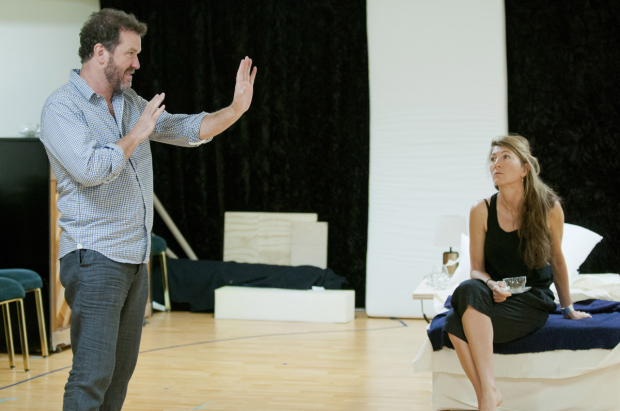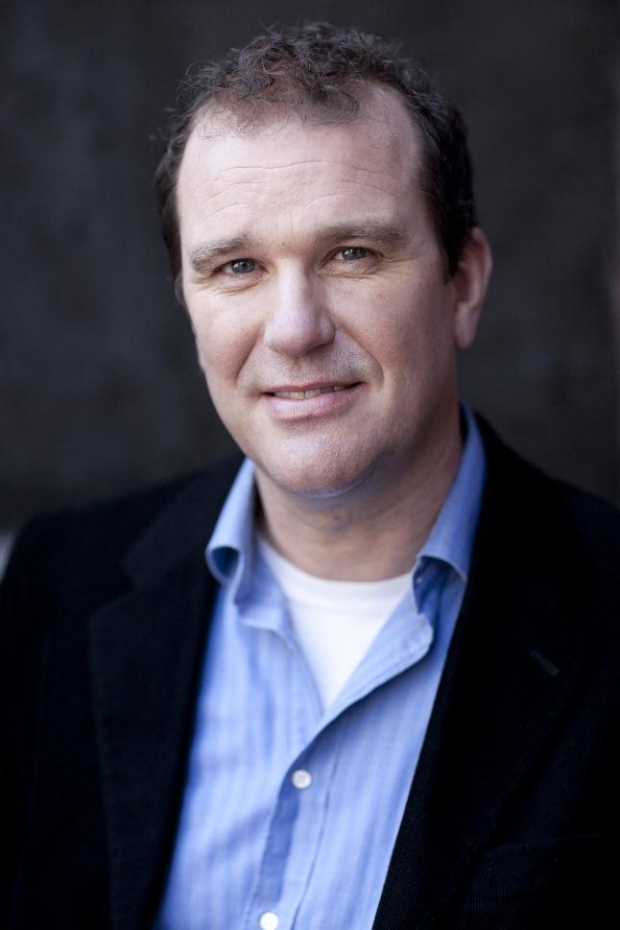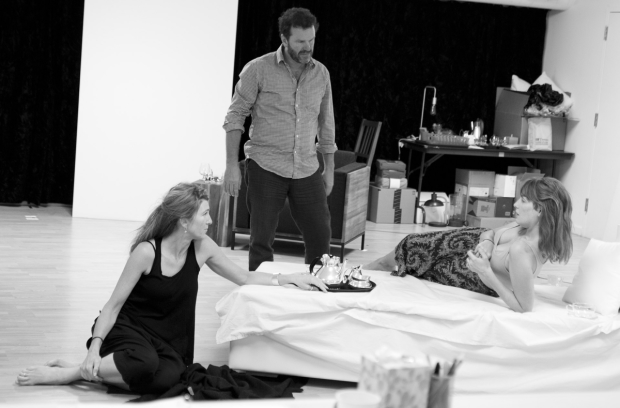How Harold Pinter Went From Foe to Father Figure for Old Times Director Douglas Hodge
Iconic playwright Harold Pinter is more than a hero to Douglas Hodge, who is making his Broadway directorial debut this fall with Pinter's Old Times. For Hodge, the late Nobel Prize-winning writer has also been collaborator, muse, and "more or less a father figure." So when Roundabout Theatre Company asked Hodge — a Tony Award winner for his starring role in the 2010 revival of La Cage aux Folles — to return to Broadway as a director, helming a play written by his old friend was the obvious choice.
"It seemed like a match made in heaven, really," recalls Hodge. "I've been associate director at the Donmar in England, and I've directed a lot over there…Of course I always have this allegiance to Pinter, and the play hadn't been done [in New York] in thirty years, so it seemed like the perfect fit really."
That perfect alignment has even extended to include the production's casting. When Hodge suggested to Roundabout that his ideal cast would include Clive Owen, Kelly Reilly, and Eve Best, the theater company reached out to those actors, each of whom responded with a resounding yes.
After "hurdling" home from a recent rehearsal on a Citi Bike (an activity he says is the "perfect antidote" to a day of Pinter), Hodge told Theatermania, "I'm sitting in the room every day thinking, this is exactly perfect casting. They're all at the top of their game, and I can't think of anyone better in those roles." And Hodge should know. After all, he spent almost ten years working nearly exclusively with Pinter — from acting alongside him to directing film versions of his plays. "He was just a brilliant, brilliant man," reflected the nearly minted Broadway director.

(© Jenny Anderson)
Tell me about your history with Pinter.
We actually met because we were both cast to act in his play No Man's Land. He was an extremely volatile, dangerous, and unpredictable man, and so I was pretty terrified the first time that we met, and I thought we were gonna end up in fisticuffs. We had some sort of altercation over stage management or something. That was in the first week of knowing him, I think, during rehearsals, and then we became firm friends.
During that time…he wrote a play called Moonlight, and he wrote a part for me in it. He handed that to me during our run, and that was it from then on. I sort of stayed with him. I knew him up until he died. I did [Moonlight and No Man's Land] in the West End, and I did The Caretaker and Betrayal and The Lover/The Collection. I've directed a film of Victoria Station and Dumb Waiter. He was a very loyal person, and he tended to offer me every show he did, really — whether it was as a director or an actor. And it was very difficult to say no.

What do you think your experience with Pinter's work, as well as Pinter as an individual, will bring to this production?
There's certainly a kind of music to the way he writes which is very familiar to me. There's an essence, the way he spoke as a person, that you can hear in the rhythms of his writing [and] in the characters that he writes. So I feel I have a real closeness to the world of Pinter and the world that he inhabits. Where he was instinctive, I can follow my instincts too. And I know that certain things aren't too literal. So I suppose I have an ear for his particular vernacular.
Working on a play that's so open to interpretation, it must be useful to have your unique perspective.
I can't stand interpretation. I think it's one of the great scourges of the theater. I just think, "Don't get in the way of the play." There are all sorts of interpretations for the play I'm directing at the moment, but there are also very familiar and real things to latch onto.
It's a play of imagination and memory and dreams and ghosts, but then again, if you went to see a dance piece, you'd intuit what was going on. Or if you read a piece of poetry, you wouldn't necessarily have to construct a narrative around it, you would just accept it. There's an element of this play where he was breaking out from some of the earlier plays he'd written. He said specifically that he no longer wanted to write drawing-room plays, as he called them, which had doors and walls and windows. And because this play looks at memory and how subjective it is, the play itself is blurred around the edges deliberately.
What excites you most about bringing this play to Broadway?
To have a place like Roundabout where you can risk putting on an eighty-minute poetic, complex, intelligent piece of theater — you know, alongside all the musicals and everything — is crucial to me. I would dearly love for a younger audience to come in. It's why I've got Thom Yorke doing some music. I think there are a lot of young people who will come in and go, "Wow this is incredible I didn't know this existed." I think it's one of the best plays of the last fifty years, to be honest. It's a tremendous imaginative piece of poetry, almost, so it really deserves to be seen.
Sometimes [Pinter is] done with such reverence and such earnest pretentiousness — it's just kind of nonsense. So it's very important to me that the play's organic, that it's relevant and it's sexy.

(© Jenny Anderson)










